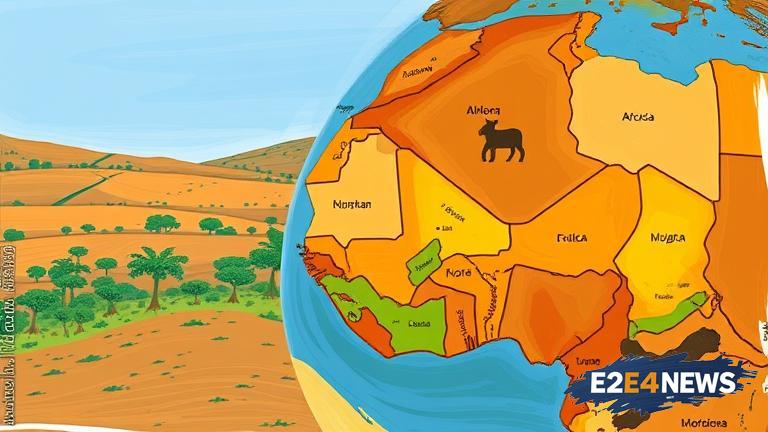West Africa’s food security is a pressing concern, with the region heavily reliant on imports to meet its food needs. The Economic Community of West African States (ECOWAS) has identified 5 key borders that are crucial to addressing the region’s food security challenges. These borders are not only important for trade but also for the movement of people, goods, and services. The first key border is the Nigeria-Benin border, which is a major trade route for agricultural products. The border is prone to congestion, which can lead to delays and increased costs for traders. To address this, the Nigerian government has implemented measures to streamline customs procedures and reduce wait times. The second key border is the Ghana-Togo border, which is an important route for the transportation of goods, including food products. The border is known for its efficiency, with minimal delays and a well-organized customs process. The third key border is the Senegal-Mauritania border, which is a critical route for the trade of livestock and agricultural products. The border is prone to security challenges, which can disrupt trade and impact food security. To address this, the Senegalese and Mauritanian governments have increased security measures, including the deployment of troops and the establishment of a joint border patrol. The fourth key border is the Mali-Burkina Faso border, which is an important route for the trade of agricultural products, including cotton and livestock. The border is prone to security challenges, including terrorism and banditry, which can disrupt trade and impact food security. To address this, the Malian and Burkinabe governments have increased security measures, including the deployment of troops and the establishment of a joint border patrol. The fifth key border is the Cote d’Ivoire-Liberia border, which is a critical route for the trade of agricultural products, including cocoa and coffee. The border is prone to security challenges, including terrorism and banditry, which can disrupt trade and impact food security. To address this, the Ivorian and Liberian governments have increased security measures, including the deployment of troops and the establishment of a joint border patrol. In addition to these key borders, the ECOWAS has implemented several initiatives to improve food security in the region. These include the establishment of a regional food security reserve, which provides emergency food assistance to countries in need. The ECOWAS has also implemented measures to improve agricultural productivity, including the provision of seeds, fertilizers, and other inputs to farmers. Furthermore, the ECOWAS has established a regional trade facilitation program, which aims to reduce trade barriers and increase the efficiency of customs procedures. The program includes the implementation of a single window system, which allows traders to submit all required documents and payments through a single portal. The ECOWAS has also established a regional transport network, which aims to improve the movement of goods and people across the region. The network includes the construction of new roads and the rehabilitation of existing ones, as well as the establishment of a regional rail network. In conclusion, West Africa’s food security is a complex issue that requires a multifaceted approach. The 5 key borders identified by the ECOWAS are critical to addressing the region’s food security challenges, and efforts to improve trade facilitation, agricultural productivity, and regional stability are underway. However, more needs to be done to address the root causes of food insecurity, including poverty, conflict, and climate change. The international community must work together to support the ECOWAS and its member states in their efforts to improve food security and reduce poverty in the region. This can be achieved through the provision of technical and financial assistance, as well as through the promotion of regional trade and investment. By working together, we can help to ensure that West Africa has a food-secure future, where all people have access to sufficient, safe, and nutritious food.





